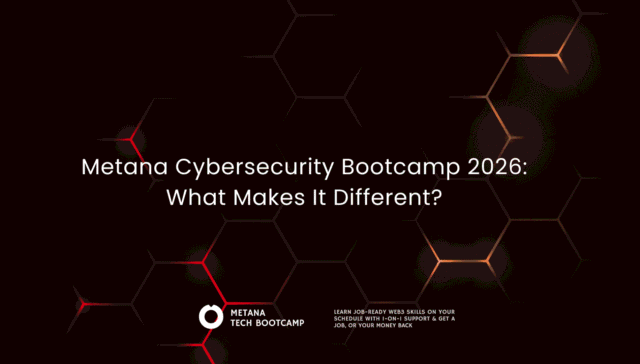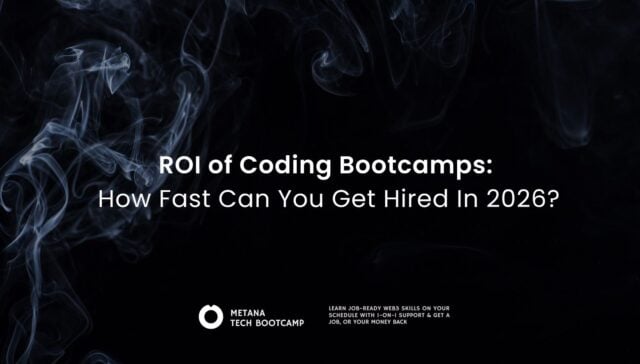TL;DR
- Yes! Business analysts already possess valuable transferable skills (problem-solving, communication, systems thinking) that provide a strong foundation for software engineering
- Learning path options include bootcamps, self-learning, or degree programs to gain programming languages, development methodologies, and algorithm skills
- Choose between full-stack or specialized roles (front-end, back-end, mobile) based on your interests and existing strengths
- Success requires building a portfolio of projects, connecting with the tech community, and overcoming challenges like imposter syndrome with a growth mindset
Ever felt the call of the code? As a business analyst, you understand the “what” behind software, but maybe you’re yearning to unlock the “how.” Well, my fellow analyst friend, fear not! The transition to software engineering might be closer than you think. Can a business analyst become a software engineer? Absolutely! Perhaps you’re drawn to the creativity, problem-solving, and career growth opportunities that come with coding. Or maybe you’re just tired of watching developers have all the fun. Whatever your motivation, let’s address the elephant in the room: Yes, transitioning from business analyst to software engineer does come with its challenges—learning curve, starting from scratch, imposter syndrome—but who said challenges aren’t just opportunities in disguise?
Breaking Down the Bridge
So, you’re itching to switch from analyzing the “what” to crafting the “how” with code. But are you starting from scratch? Absolutely not! As a seasoned business analyst, you already possess a treasure trove of transferable skills that will supercharge your journey to becoming a software engineer. Let’s break down the bridge between your current expertise and your coding future:
What You Already Rock:
- Problem-Solving Savvy: You’re a pro at dissecting complex problems, understanding user needs, and finding creative solutions. This analytically honed mind is crucial for tackling programming challenges and designing efficient software.
- Communication Maestro: You translate complex concepts into clear, concise terms for stakeholders. This communication magic will shine when collaborating with developers, explaining technical details to non-technical audiences, and writing code that others can understand.
- System Symphony Conductor: You understand how different parts of a business work together. This systems thinking translates perfectly to software development, where you’ll juggle various components and ensure they function harmoniously.
New Skills to Unlock:
- Language Learning: Time to brush up on your vocabulary! Programming languages like Python, Java, or JavaScript will become your new tools for expressing your ideas in code.
- Methodology Mastery: Agile, Waterfall, DevOps – these are just some of the different approaches to software development. Learning the ropes of these methodologies will help you understand how projects are planned, executed, and delivered.
- Algorithmic Adventures: Data structures and algorithms might sound intimidating, but they’re essentially the building blocks of efficient code. Don’t worry, you’ll learn how to navigate these concepts step-by-step.
Don’t be intimidated by the “new skills” section. Think of it as expanding your skillset, not starting from zero. With your solid foundation and a willingness to learn, you’ll be writing code and building amazing software in no time! Stay tuned for the next part, where we’ll explore different paths you can take to make this transition happen.
Choosing Your Path: Full-Stack or Specialized?
Ready to code, but unsure where to start? Navigating the various software engineering roles can feel overwhelming, but here’s how your existing skills can guide you:
1. Full-Stack: Craft both the user interface and the server-side of applications. Requires mastering multiple languages and technologies, making you a versatile coding warrior, but be prepared for a broader skillset.
2. Specialized: Focus on a specific area like front-end (user interfaces), back-end (data and server magic), or mobile app development. Allows for deeper expertise and faster career progression in your chosen domain.
Which resonates with you? Are you drawn to the broad strokes of full-stack mastery, or do you prefer the focused intensity of specialization? Remember, your existing comfort with design or data analysis can also point you in the right direction.

Bootcamps vs. Self-Learning vs. Degree Programs
Three paths await to hone your skills:
1. Bootcamp: Immerse yourself in an intensive, fast-paced program designed to get you job-ready quickly. Expect high costs, time commitment, and a focused curriculum. Ideal for those who thrive in structured environments and want a rapid career switch.
2. Self-Learning: Embrace the DIY approach with free online courses, tutorials, and personal projects. Flexibility and affordability reign supreme, but discipline and independent study skills are crucial. Perfect for self-motivated learners who enjoy exploring at their own pace.
3. Degree Programs: Pursue a computer science degree for a well-rounded foundation in theoretical and practical aspects of software engineering. Expect longer timelines and significant costs, but you’ll graduate with a recognized credential and a deeper understanding of the field. Ideal for those seeking a structured academic environment and a strong theoretical foundation.
Remember, there’s no one-size-fits-all approach. Consider your time constraints, budget, learning style, and career goals when choosing your path. The important thing is to start learning! Experiment with different resources, find what works for you, and don’t be afraid to adapt your approach as you progress.
Beginner-Friendly Resources
Feeling lost at sea? Fear not, coding adventurer! This treasure map guides you to beginner-friendly resources and the exciting world of project building:
1. Programming Languages:
- Python: Easy to learn, versatile, and has a massive online community. Dive into tutorials on Codecademy or interactive platforms like DataCamp.
- Java: More powerful, but online courses like Udacity’s Intro to Java Programming and the official Java Tutorials will guide you.
Remember, the language depends on your interests and goals. Explore different options and see what clicks!
2. Essential Skills: Build your coding foundation:
- Data Structures & Algorithms Demystified: FreeCodeCamp’s course and MIT OpenCourseware’s “Introduction to Algorithms” break them down.
- Version Control with Git: GitHub Guides and interactive platforms like GitKraken will make you a master.
Don’t be overwhelmed! Take it step-by-step, and remember, every successful developer started as a beginner.

Building a Portfolio
Showcase your skills by building projects. Start small – a website, a mobile app game, or even an automation script. Here’s your inspiration:
- FreeCodeCamp: Bursting with projects for all skill levels.
- Codecademy’s Learn by Doing Projects: Guided projects covering web development, data science, and more.
- GitHub Explore: Get inspired by open-source projects and contribute your own code to real-world applications.
Every project is a stepping stone on your coding journey!
Community and Support: You’re Not Alone
Connect with other aspiring engineers and get help from the amazing tech community:
- Online communities and forums: Stack Overflow, Reddit’s r/learnprogramming, and online communities specific to your chosen language or domain.
- Mentoring programs: Find mentors through platforms like CodeNewbie or Ladies Who Code.
- Online meetups: Attend local or virtual meetups to connect with other coding enthusiasts.
Remember, the tech community is there to support you! Don’t hesitate to ask questions, share your progress, and learn from others.
Overcoming Challenges: Conquering Your Inner Code Critic
Feeling inadequate? Remember, everyone feels imposter syndrome sometimes. Focus on the learning journey and growth mindset.
Juggling responsibilities? Set realistic goals, prioritize, and utilize time management techniques.
Staying motivated? Read stories of successful transitions, celebrate small wins, and find coding buddies for accountability.
Conclusion: Can a Business Analyst Become a Software Engineer?
You’re not starting from scratch. Your business acumen is your secret weapon! Embrace the learning curve, conquer imposter syndrome, and fuel your motivation with inspiring stories and small wins.
Key takeaways:
- Bridge the Skills Gap: Leverage your existing strengths and learn new languages and methodologies.
- Choose Your Path: Full-stack mastery or specialized excellence? Pick your coding adventure!
- Resources Abound: Beginner-friendly languages, essential skills guides, and project inspiration await.
- Community Matters: Connect with other aspiring engineers for support and motivation.
Ready to embark on this epic journey? Take that first step! Start learning, explore resources, and build your portfolio. Remember, the tech community is here to cheer you on!
Remember, every coder was once a newbie staring at a “Hello, World!” on their screen. So, why not you?

FAQs
Can a business analyst become a software engineer?
- Yes, a business analyst can become a software engineer by gaining the necessary technical skills, such as programming, and understanding software development methodologies.
What skills are needed for a business analyst to transition to software engineering?
- Skills needed include programming languages (e.g., Python, Java), understanding of software development life cycles, problem-solving abilities, and knowledge of databases and algorithms.
How long does it take for a business analyst to become a software engineer?
- The time frame varies based on the individual’s background and learning path but generally ranges from several months to a few years, depending on the intensity of study and experience gained.
Are coding bootcamps effective for business analysts aiming to become software engineers?
- Yes, coding bootcamps can be highly effective, offering intensive, practical coding experience and foundational software engineering skills in a short period.
What are the career prospects for business analysts who transition to software engineering?
- Career prospects are bright, with opportunities in various industries like tech, finance, healthcare, and more, reflecting the high demand for skilled software engineers.
How important is project management for software engineers?
- Project management skills are crucial for software engineers to efficiently plan, execute, and manage software projects, ensuring they meet deadlines and quality standards.
What are the best programming languages for a career in software engineering?
- Popular languages include Python, Java, C++, and JavaScript, chosen based on the specific field or project requirements in software engineering.
Can online courses help in transitioning to a software engineering role?
- Yes, online courses offer flexibility and a wide range of resources for learning programming languages, software development practices, and other essential skills.
What role does teamwork play in software engineering?
- Teamwork is vital in software engineering, as projects often require collaboration among developers, designers, and other stakeholders to achieve common goals.
How can a former business analyst leverage their analytical skills in software engineering?
- Analytical skills are invaluable in software engineering for problem-solving, optimizing code, designing algorithms, and understanding user requirements, enhancing overall project success.







